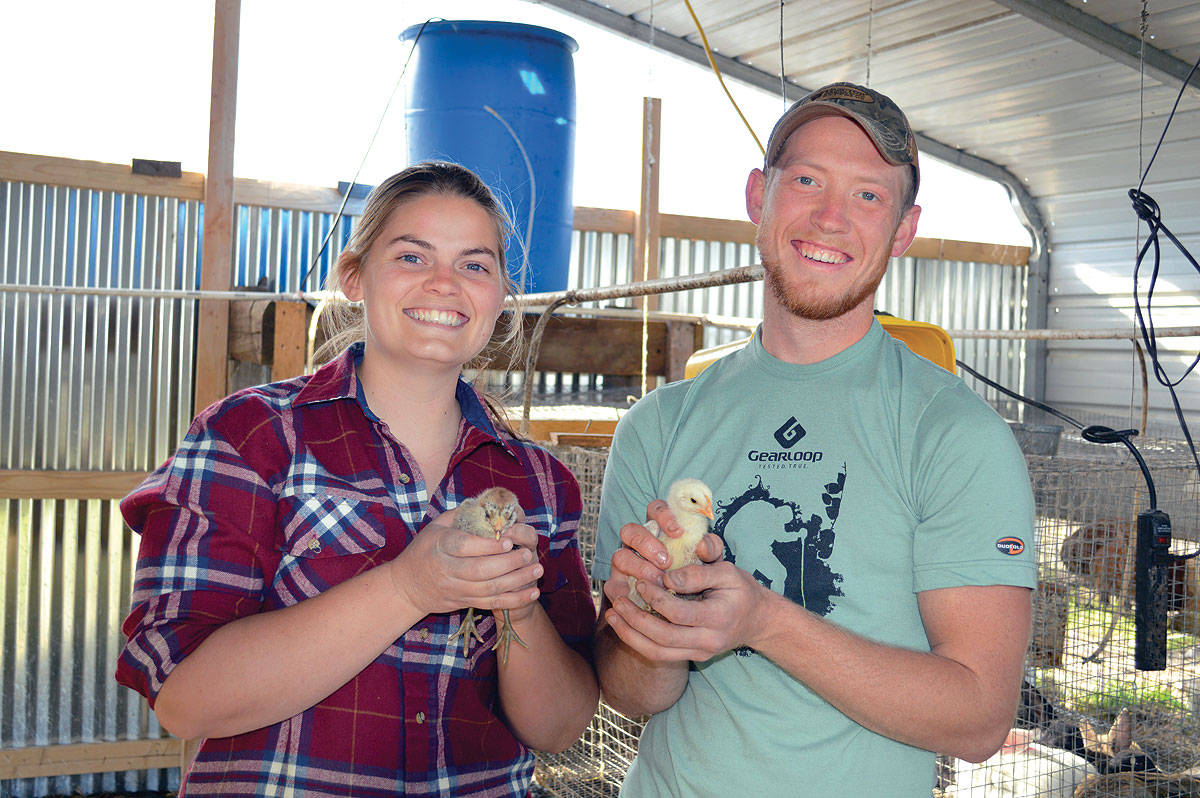
After more than two decades in the broiler chicken business, the Schnake family sold their flock and closed its poultry barns.
“We got out of it completely. We needed a little bit of a break,” Andrew Schnake explained. Andrew, along with his brother, Nathan Schnake and their father, Roger Schnake, work together to operate Schnake Family Farms in Stotts City, Mo.
There was still plenty to keep the Schnake family busy on their 550-acre farm. Beef cattle, row crops and jobs off the farm provided more than enough work for the Schnakes. Still, the Schnakes felt they wanted to venture back into the poultry business – somehow, someway.
Three years passed and a conversation with a neighbor provided the Schnakes with the solution they had been looking for. Their neighbor told them how he produced pasture-raised eggs for a company called Vital Farms.
“We wanted something that fit our farm and to keep it a family organization. We came across Vital (Farms) and they seemed to fit the criteria,” Andrew said.
The Schnakes criteria included humane animal treatment, a good product for consumers, and a healthy flock. In August, the Schnakes joined Vital Farms and jumped back into the poultry business. Vital Farms is the leading producer of pasture-raised eggs and partners with more than 100 farms across the country.
The family leaned on the expertise of Vital Farms to transform their barns and land into a farm prepared for laying hens.
“They (Vital Farms) came out and looked at the farm, helped us set up the pasture paddocks, and guided us about the laying equipment. Because we had been in the broiler chickens we had no clue about the laying chicken, what needed to be done, and how to go about it,” Andrew said.
The renovation included doors installed on the sides of the barns and fences built to create numerous pastures where the chickens roam. The Schnakes also purchased and installed laying equipment for their remodeled barns. Though it was a significant financial investment to get started, the Schnakes are sold on this type of poultry farming. “It is a lot more enjoyable than what we were doing before with the broiler chickens,” Andrew said.
In fact, Andrew is convinced his family is on the cutting edge of a growing trend in the poultry business. “I believe it is the way of the future,” Andrew commented.
The Schnakes care for 30,000 Bodan chickens, split into smaller flocks across several barns, and collect 28,000 eggs each day. Vital Farms transports the eggs to a processing facility in Arkansas and then distributes the eggs to retailers throughout the United States. Vital Farms eggs can be purchased at Target, Whole Foods Market, Kroger and other grocery stores throughout the country.
Currently, Vital Farms is building a processing plant in Springfield, Mo., due to the large concentration of Vital Farms producers in the area. The plant is set to open this fall and will distribute eggs to grocery stores nationwide.
The Schnakes’ chickens are free to roam in the pastures next to the barns during the day and then come inside at night. According to Vital Farms, their farmers provide 108 square feet of pasture per bird, which is more than 50 times the area some free-range hens may get.
“Letting them out is the key to keeping them healthy,” Andrew said. “They enjoy going out. Everyday you let them out, they are waiting by the door to go out.”
In the beginning, the Schnakes worried about whether their chickens would want to come back into the barn at night. “That first day we turned them out we were concerned about what would happen when we turned them back in,” Nathan recalled. “But when the sun started going down, the chickens found their way back in to the barn.”
At the Schnake Family Farms, each barn is surrounded by 25 acres of rotational pasture for the hens. Each 25-acre tract is divided into eight paddocks. The chickens are free to forage and wander in two paddocks at a time. The Schnakes rotate the chickens into different paddocks every two weeks.
In addition to the pasture diet of insects and natural vitamins and minerals eaten while outside in the fields, the hens’ diet is supplemented with a corn-based feed. According to studies conducted by Penn State University, this addition to the chickens’ diet results in eggs that are more nutritious and higher in vitamin A, vitamin E and omega-3 fatty acids.
So far, the reentry into the poultry business has proved to be successful for the Schnake family. And if their operation continues as it is now, the Schnakes may very well stay in the poultry business for another 20 years, or even longer.







